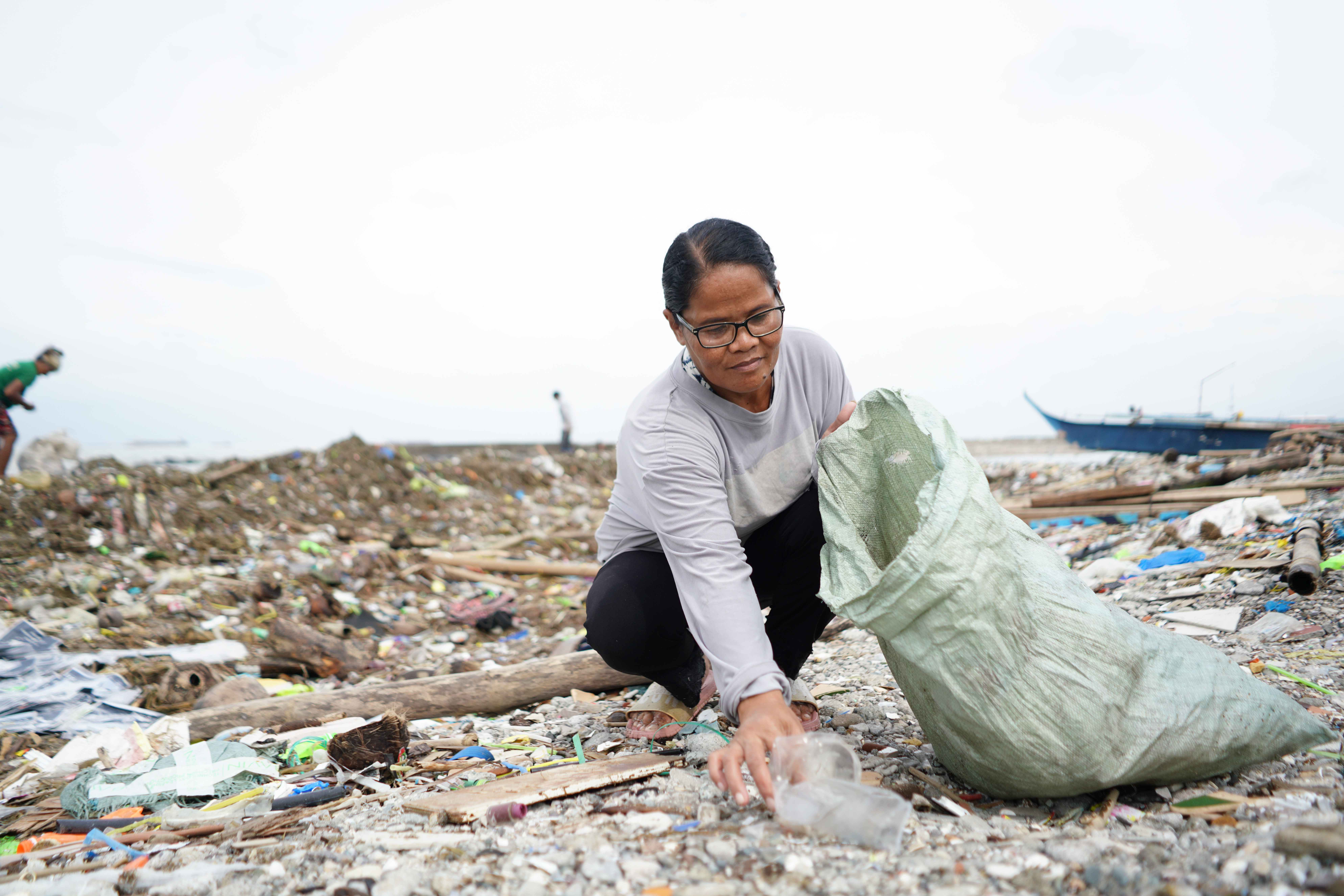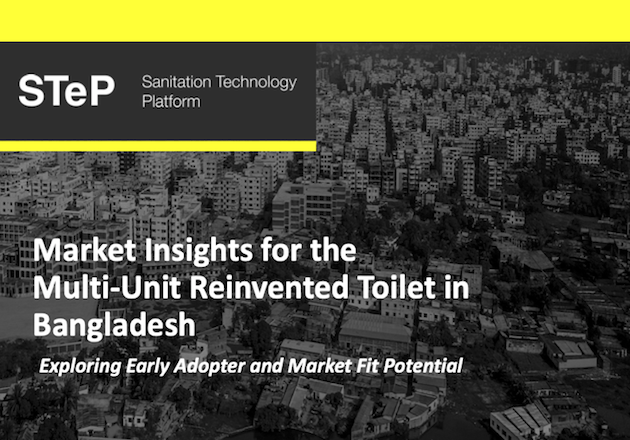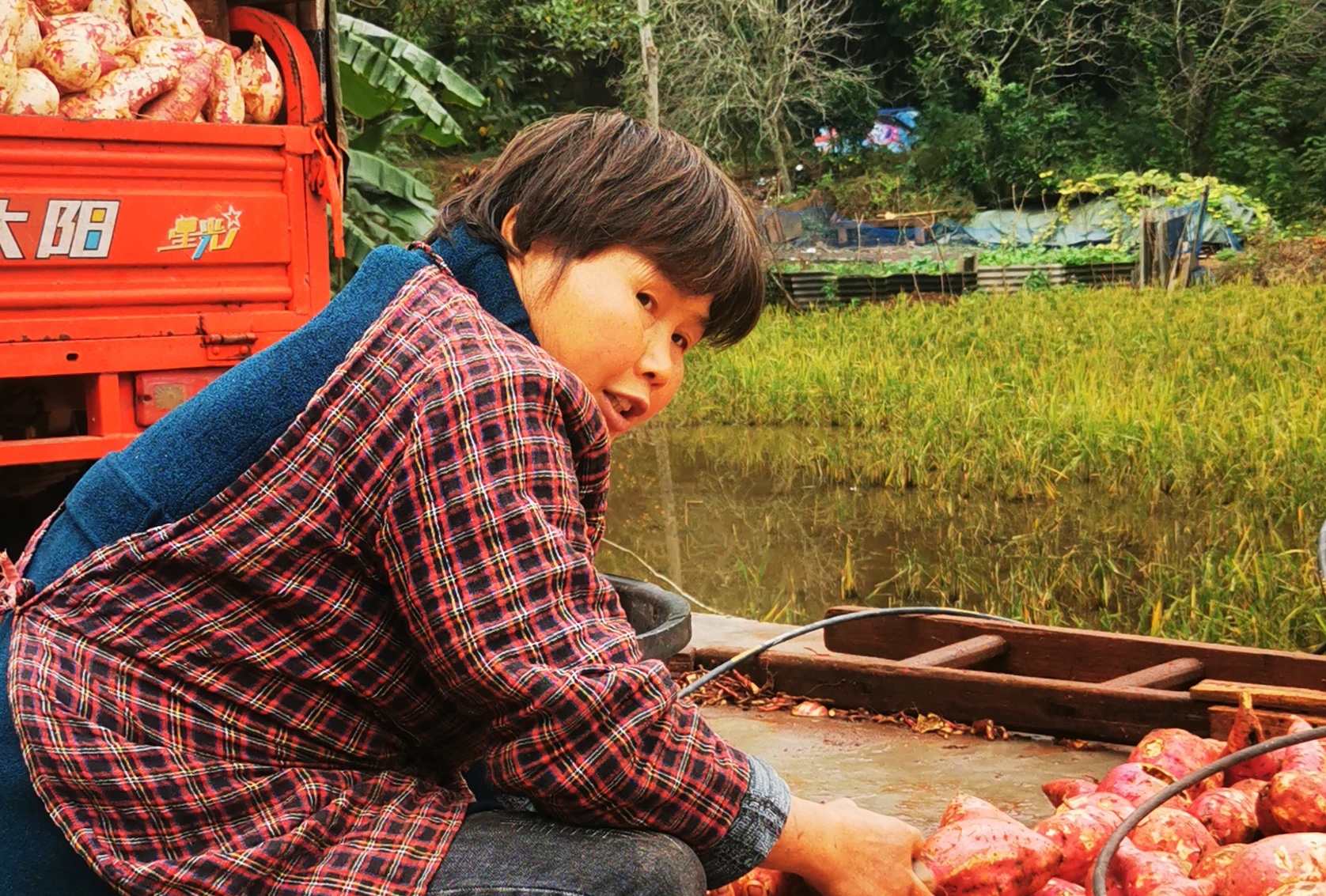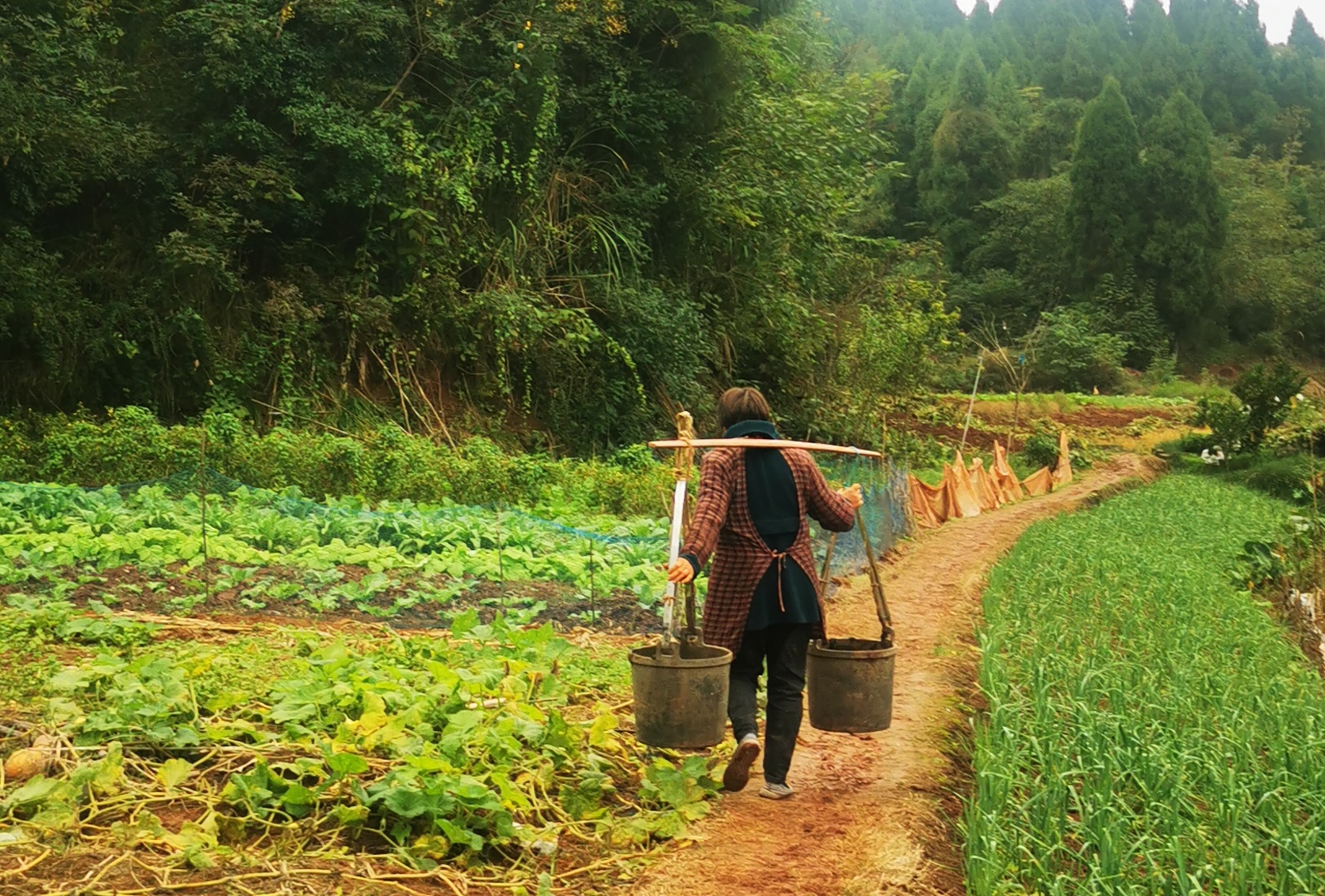


UPM Umwelt-Projekt-Management GmbH (UPM) is proud to announce that the Market insights for the multi-unit reinvented toilet in Bangladesh Report is now available for download from the Gates Open Research platform. The report is the result of a cooperation between RTI Innovation Advisors, a business unit within RTI International (RTI), a nonprofit research institute, and UPM teams.
The report focuses on understanding the barriers and enablers for scaling on-site sanitation in Bangladesh, and more specifically, on how the Multi-Unit Reinvented Toilet (MURT) could enter the market and aid in the government’s vision of scaling safely managed sanitation across the country. The report also lays out various actions for key stakeholders required in the near-, medium-, and long-term to open the market and scale Onsite Sanitation Systems (OSS) solutions, in particular, the MURT.
To support this assignment, UPM engaged a team of international and national consultants in Bangladesh with expertise on the reinvented toilets technologies offering and sanitation sector Bangladesh. The technical assistance services provided by the team included primary research and synthesis, as well as critical review and inputs to the overall findings.
“In partnership with UPM, we investigated potential early adopters and market fit for an advanced on-site sanitation technology in Bangladesh,” said Amanda Rose, an Innovation Advisor at RTI. “UPM assembled a team of well-networked and knowledgeable researchers in which we had great confidence. We greatly valued their thought partnership and contributions to the study.”
“The importance of efficient sanitation is often underestimated. However, it is the cornerstone of a healthy community! We are hopeful that work, such as the one done with the RTI team, is helping to get the latest innovations from the sanitation sector to the ground where is needed faster”, said Martin Dilger, UPM Managing Director.
Bangladesh has made significant progress towards improved sanitation in the past many years. However, the country still faces major challenges in terms of containment and treatment of faecal waste. Issues of safely managing sanitation amidst limited treatment capacity, high population density, climate change impacts, and an ongoing Rohingya refugee crisis loom large for the country. In Bangladesh, nearly 60 million residents live in urban areas. Utilities are struggling to cope with this rapid urban growth and delivering citywide sanitation services is a major challenge. Since 2017, the government’s policy priorities for sanitation focus on FSM, public toilets, improved service coverage and service level, and sanitation in schools.
Reinvented Toilets are a new generation of toilets that treat waste and kill pathogens without the need for connections to sewers, treatment plants, water supply, or continuous electricity. These new toilets use a variety of innovative technologies to break down human waste and destroy germs, leaving behind clean water and solid that won’t harm people or the environment. The toilets can be used either for individual households or multiple stall facilities that can serve local communities, schools, apartment buildings, and commercial enterprises.
Multi-unit Reinvented Toilets (MURTs) represent a potentially transformative option for the Bangladeshi sanitation sector: MURTs have a central processing unit that connects to multiple toilets to treat waste and recycle wastewater for flushing. Their capacity varies up to ~1000 users. They could be installed as toilet blocks in refugee camps as well as in schools, hospitals and apartment buildings, as public toilet blocks along the roadside, near mosques and in markets, and as mobile sanitation device for public events. Designed under the ISO 30500-Compliant Systems, MURTs are addressing septic system limitations, as they remove blackwater from the waste stream. While they remove faecal solids and faecal pathogens, they significantly remove the hydraulic loading from toilets and extend service intervals, which results in economic and ecological benefits. MURTs represent new-to-the-world innovations that beckon for conducive market ecosystems if they are to achieve their transformative impact.
For further information about UPM’s Technical Assistance services in the sanitation sector and Bangladesh, please do feel free to consult our website or contact:
Martin Dilger, Managing Director, UPM Germany, mdilger(at)upm-cdm.eu
Marie Reysset, General Manager, UPM China, mreysset(at)upm-cdm.eu
About RTI International
RTI International is an independent, nonprofit research institute dedicated to improving the human condition. Clients rely on us to answer questions that demand an objective and multidisciplinary approach—one that integrates expertise across the social and laboratory sciences, engineering, and international development. We believe in the promise of science, and we are inspired every day to deliver on that promise for the good of people, communities, and businesses around the world. For more information, visit www.rti.org.


